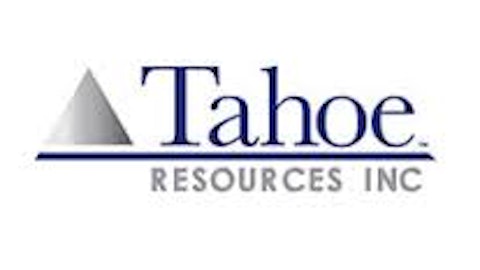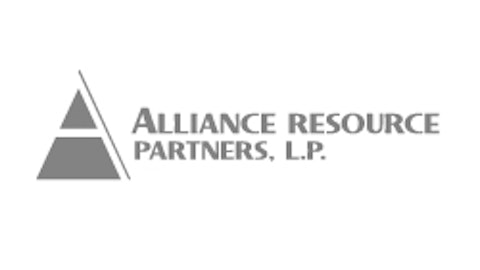Compass Minerals International, Inc. (NYSE:CMP) has increased its dividend every year since going public in 2003 and boasts an operating history dating back to 1844. Its businesses are simple to understand, largely uncorrelated with the economy, and meaningfully advantaged by a unique set of assets that is, in many cases, practically impossible to replicate.

The stock also has an attractive dividend yield of 3.6%, a 10% historical dividend growth rate, a reasonable earnings multiple (14x), and meaningful free cash flow growth potential over the next five years.
Temporary macro headwinds (the mild winter weather in the Midwest and weak agricultural markets) are impacting the business at the moment. In fact, CMP issued a press release yesterday evening that showed the fourth quarter of 2015 recorded 64% fewer “snow events” than the 10-year average, resulting in sales of the company’s highway deicing products to fall by 32% compared to 2014. Softness in agricultural markets is also impacting demand in CMP’s plant nutrition segment, which missed guidance and sold 41% fewer tons in Q4 than it did in 2014.
While these factors could continue weighing on the stock for the next few months or even quarters, we do not expect them to have an impact on CMP’s long-term earnings potential or dividend safety. Let’s take a closer look at why we own this dividend payer in our Conservative Retirees dividend portfolio.
Among the investors tracked by Insider Monkey, CMP is not very popular. During the third quarter of 2015, the number of funds with long positions in the company declined to 10 from 18. Moreover, the total value of these funds’ holdings slid to $82.06 million from $120.67 million and was equal to around 3.10% of the company’s outstanding stock at the end of September. Phill Gross and Robert Atchinson’s Adage Capital Management were the largest shareholder of CMP among the funds in our database, owning some 428,000 shares, followed by Amy Minella’s Cardinal Capital with a new stake of 353,000 shares.
Business Overview
CMP’s operations date back to the 1840s. Today, the company is a leading producer of essential minerals primarily serving markets in North America (75% of sales) and the U.K. The company produces salt (primarily used by cities for deicing roads but has many consumer and industrial uses as well), specialty potash (a premium fertilizer that improves the quality, yield, and shelf life of high-value fruit, vegetable, and tree nut crops), micronutrients (essential minerals that maximize plant yields), and magnesium chloride (used in numerous ways including roadway deicing, dust control, and as plant nutrients for wheat crops).
CMP owns a handful of salt mines (including the largest rock salt mine in the world – located in Canada – and the biggest in the U.K.) and solar evaporation facilities (including the only sulfate of potash production site in North America) that it uses to produce its minerals. The company is the third-largest salt producer in North America and the largest producer of specialty potash and dry dispersible powder micronutrients.
The company’s 2014 revenue mix by division was: Highway Deicing Salt 49%, Consumer & Industrial Salt 30% (water conditioning, table salt, ice control, animal nutrition, plastics, etc.), and Plant Nutrition 21%.
Business Analysis
CMP’s primary advantages are its mineral production sites and logistical networks, which create meaningful barriers to entry and pricing power. Before we dive in deeper, it’s worth mentioning the relatively attractive characteristics of salt.
Salt is mostly a non-discretionary purchase that has no economic substitutes or alternatives today. Governments must buy salt to keep their roadways safe, regardless of how well the economy is doing.
According to the latest available data from the U.S. Geological Survey, during the thirty-year period ending 2012, the production of salt used in highway deicing and for consumer and industrial products in the U.S. has increased at an historical average of approximately 1% per year. Over this same period of time, prices for salt in the U.S. have increased at an historical average of 3% per year.
The cost of salt typically represents less than 1% of a government’s budget, helping CMP’s pricing ability because its products are a relatively small burden on the budget.
Governments purchase salt by taking in bids between April and October. They award a 12-month contract to the lowest bidder, and most contracts have a minimum volume clause (typically 80%) and fix pricing over the duration of the deal.
Governments keep only enough rock salt on hand for 2-3 applications because it’s too bulky for them to store in large quantities. They reorder as their supply is used, which can significantly shift the supply-demand dynamic in favor of salt producers during extreme winter weather events – CMP’s average price on awarded highway deicing contracts rose by 25% in 2014 as a result.
With that said, rock salt is a commodity. What makes it an attractive business for CMP?
With CMP’s highway salt fetching an average selling price of $57 per ton in 2014, the weight-to-value ratio is extremely high for salt. It quickly becomes clear that production and shipping costs define a salt company’s service area. In fact, transportation costs typically account for 30-40% of the total delivered cost of salt.
Compass Minerals International, Inc. (NYSE:CMP) is the lowest cost producer for the Midwest area because it owns the largest and highest-quality grade rock salt mine in the world in Ontario, Canada, and has a network of 85 supply depots along navigable waterways to reach customers affordably and quickly (its mine is located right next to Lake Huron).
Water transportation is about half the cost of rail and one-third the cost of trucking, keeping CMP’s operations very efficient. The company’s presence in the Midwest also protects it against import competition, which is only somewhat effective on the East and West coasts of the U.S.
Rock salt must also be near customers before winter starts because they can only store so much at a time and might need to order some for quick delivery in the event of a severe winter storm. CMP’s network can get salt to customers quickly by rail, truck, barge, or vessel.
Competitors in the market lack CMP’s economies of scale (their mines can’t produce as much salt and have higher costs) and waterway network advantages. CMP’s asset network allows the company to execute a very competitive bidding strategy that significantly protects its market share thanks to its greater efficiencies.
Follow Compass Minerals International Inc (NYSE:CMP)
Follow Compass Minerals International Inc (NYSE:CMP)
Receive real-time insider trading and news alerts





